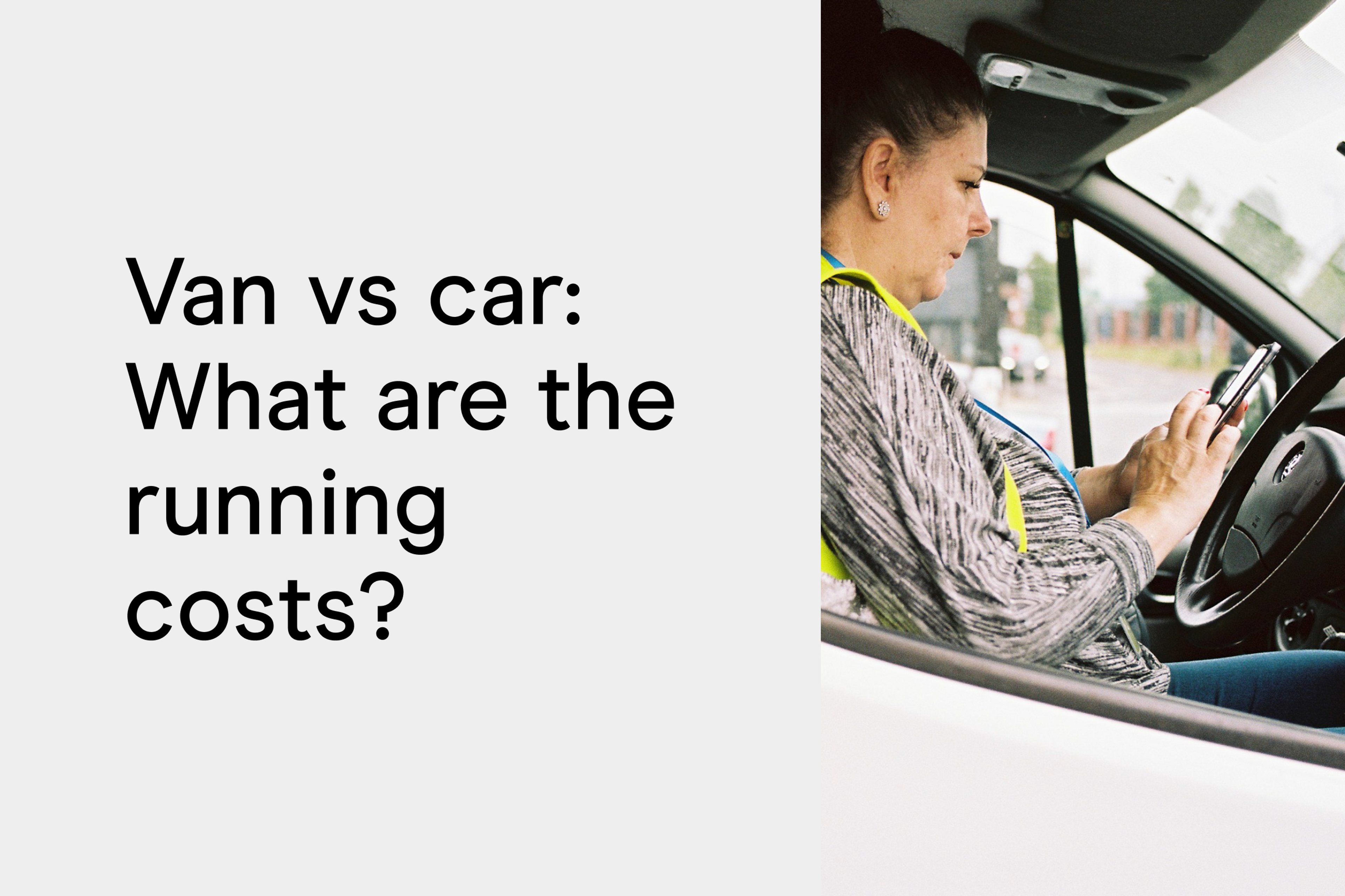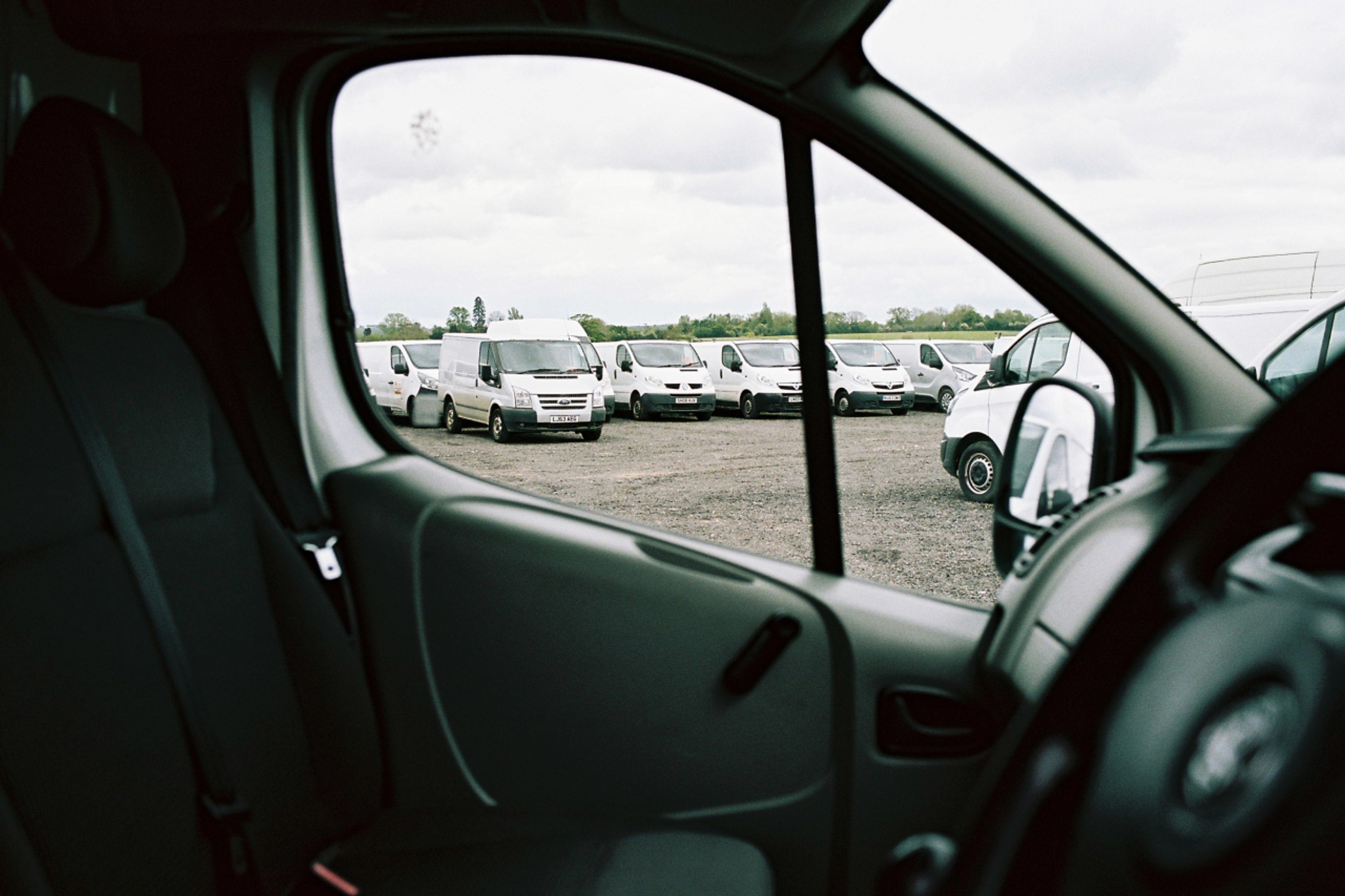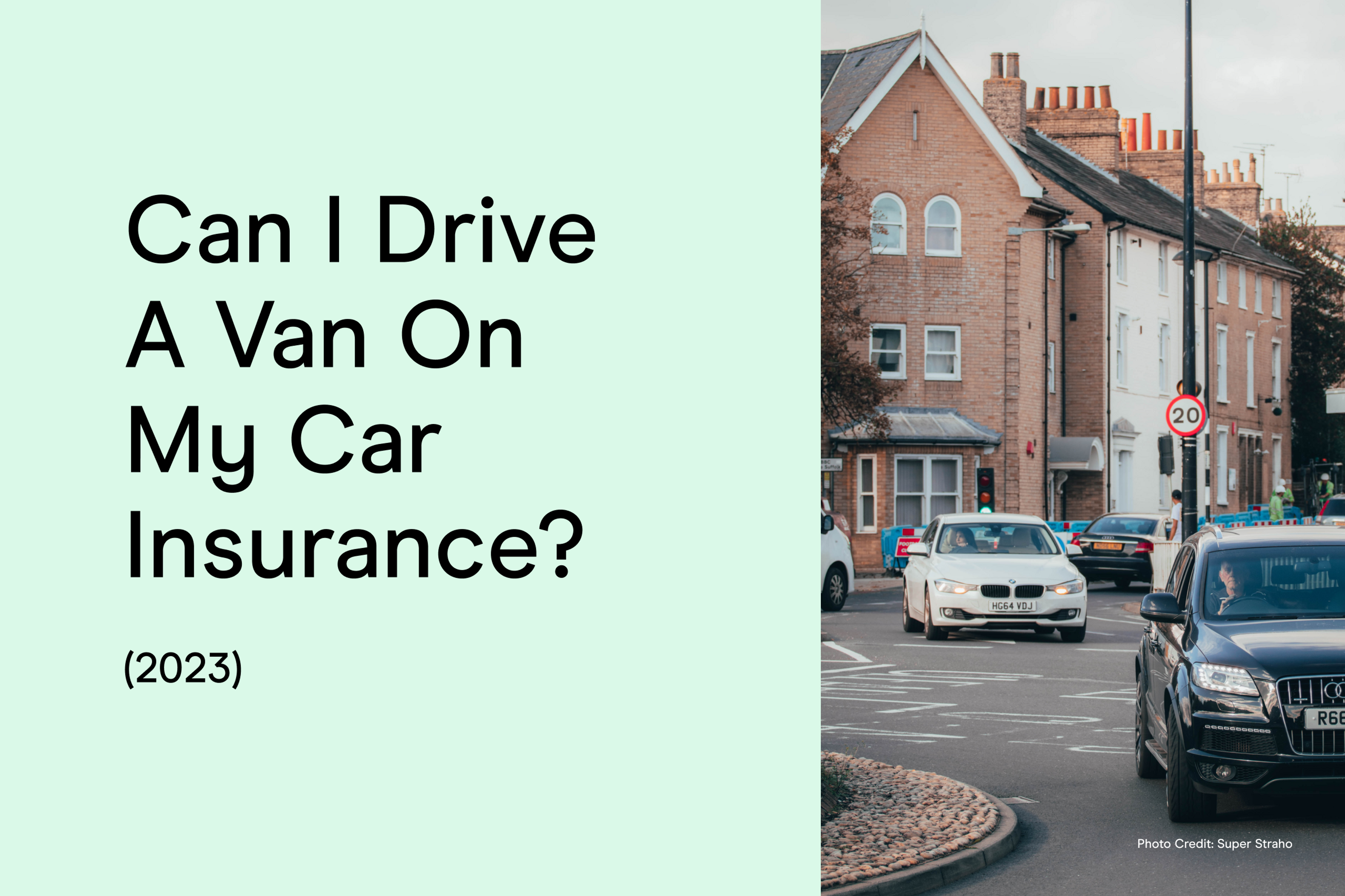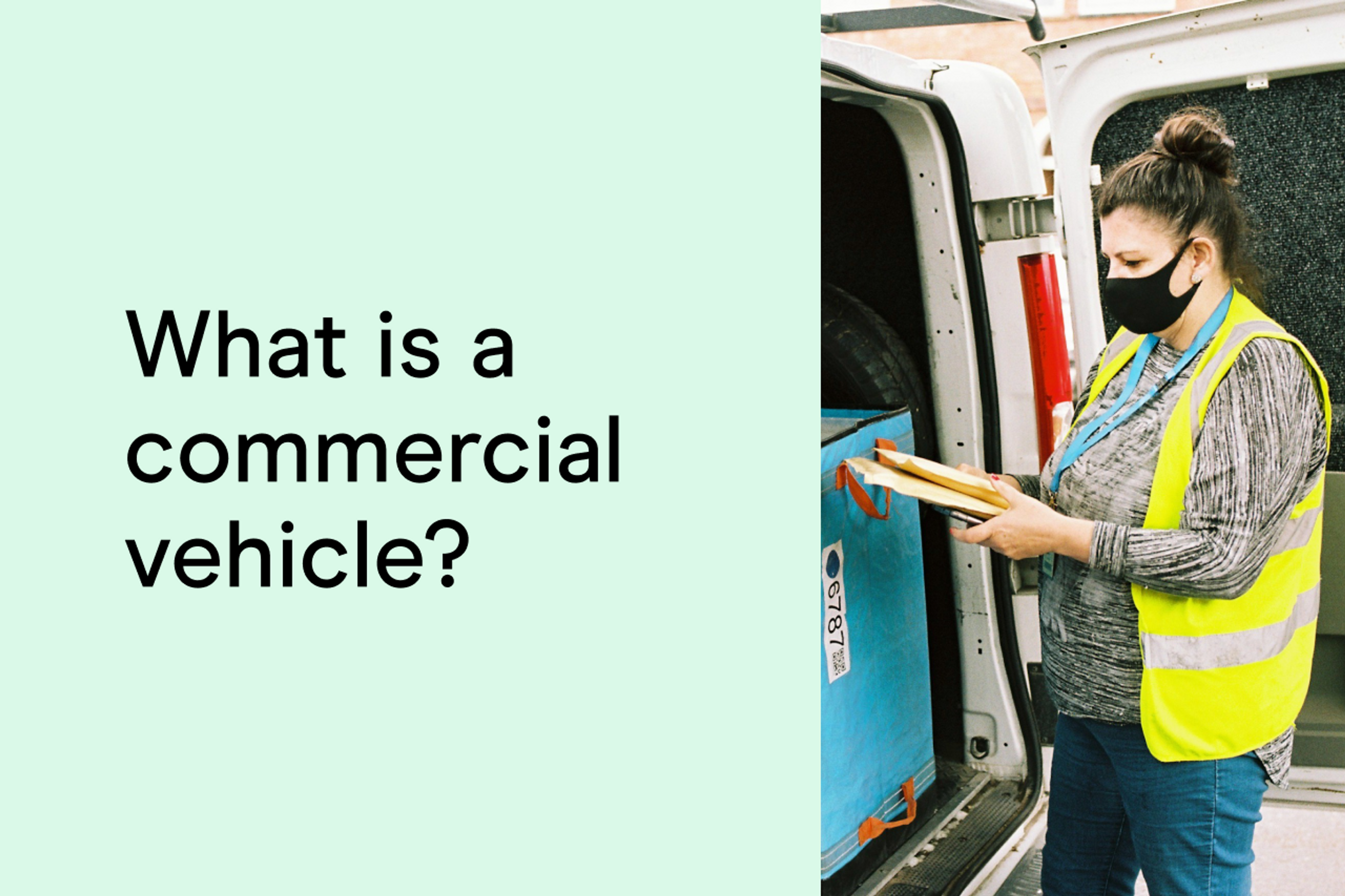If you're considering purchasing a new vehicle for your business, you may be wondering whether to go with a van or a car.
Vans have plenty of capacity for moving goods, tools, and parcels, making them an excellent choice for tradespeople, delivery drivers, and mobile enterprises.
However, in other cases, cars might be less expensive to operate.
To make the right choice, it's important to understand the key differences, especially in terms of costs like the purchase price, insurance, tax, fuel and ongoing maintenance.
Let’s take a look at these in detail.

Which is cheaper to buy: A car or a van?
One of the first things to think about is the upfront cost of buying the vehicle. This is where you’ll notice a big difference, with vans typically costing more than cars.
For a brand new van, you'll probably need to spend at least £18,000 for a basic smaller model like a Ford Transit Courier or Renault Kangoo. Larger panel vans often start from around £25,000 when bought new. And, of course, there are high-end vans that can reach up to £50,000 for some models.
In comparison, small hatchback-style cars can start from around £12,000 when bought new.
If you're looking for a used vehicle, a van is typically more expensive than a car. That is because vans tend to retain their value better. An older car is typically less expensive than a van of the same age.
So, if your budget is limited and a car will suffice, buying a car is usually less expensive than purchasing a van.
How much is van insurance?
When it comes to insuring your vehicle, van insurance is often more expensive than car insurance.
On average, the cost of commercial van insurance in the UK can be anywhere from £1,100 to well over £2,000 a year*. The amount you pay depends on a few different things, including the size and type of van, how you intend to use it, and personal factors such as your age, driving history and where you live.
Obviously, if you only intend to use your van for personal driving, rather than for work or business purposes, the cost of an annual policy is likely to be a lot less.

Why is van insurance more expensive?
Van insurance is more expensive because they are larger, and generally more powerful therfore expensive than standard-size cars, they also tend to fall into higher insurance groups. As they’re heavier, they can also cause more damage in an accident. This increases their insurance risk, which means higher insurance costs, too.
On the other hand, cars are generally smaller and less powerful, and have a much wider range of insurance groups. Smaller, less-powerful cars will usually fall into a lower group.
Your personal situation can also affect the cost of your van insurance. Your age, driving history and where you live can cause the cost of your quote to go up or become cheaper.
The fastest way to find out how much you’ll pay is to get a quote for van insurance.
Tax, MOT and other running costs
Here are some other areas where costs can differ between vans and cars:
Road tax
Unlike cars, vans are subject to a single flat rate when it comes to road tax (known as Vehicle Excise Duty, or VED). For the 2023/24 tax year, the VED tax rate for light goods vehicles (tax class 39) is £320 for 12 months, or £176 for six months.
The road tax for cars can vary, with prices ranging from around £150 to over £500 a year. The price you’ll pay largely depends on your vehicle’s emissions.
MOT
The MOT test fee is the same for cars and vans (those classed as goods vehicles under 3,000kg gross weight). Currently, the standard MOT rate is £54.85.
Fuel
Fuel economy varies a lot between cars and vans. Petrol engine cars usually manage somewhere between 40–55 mpg (miles per gallon), with diesel cars comfortably cruising at around 50–65+ mpg.
With more weight to carry, small petrol vans tend to achieve around 30–40 mpg, while diesel vans can manage anywhere from 30 mpg to over 55 mpg.
Fuel is a regular and substantial running cost for your business, so choosing an economical vehicle is likely to save you money over the long run.
Servicing and maintenance costs
Despite the difference in size, the servicing costs are fairly similar between vans and cars. One thing to be aware of is that tyres are likely to wear faster on heavily laden vans, especially if you’re covering large distances.
MOT repairs can sometimes be more expensive on vans if heavy-duty parts are required, but labour costs are similar to that of cars.
Which is more cost effective overall?
For businesses carrying large or heavy goods over lots of miles, a van usually works out more cost effective, despite the higher upfront cost to buy it.
But, depending on the work you do, a car can still be a good option. If cargo space is not so important to you, a car could potentially be the cheaper choice.
So, try to do a little research before you decide on a vehicle for your business, and add up the running costs you’ll need to cover each year. Choose a vehicle that has good fuel economy, good security features and falls into a low insurance group. Making smart choices upfront can save you a lot of money over the long run.
If you need a hand, our team will be happy to help, including giving you a quote for business van insurance. We’ll give you a personalised price right away.
Frequently asked questions
How do insurance costs compare between vans and cars?
Insurance is usually more expensive for vans, especially if you’ll be using your van for work. Commercial van insurance can cost from around £1,100 to well over £2,000 a year, depending on things like the type of van and your driving history. Compared to business van insurance, personal car insurance carries lower insurance risk, which means lower insurance costs. Policies can start from around £400 a year, however this cost will go up if you also intend to use your car for work or delivery driving.
What affects your tax, MOT and running costs?
When it comes to road tax, van drivers pay a single flat rate of £320 a year — that’s the current rate for light goods vehicles (tax class 39) for the 2023/24 tax year. Whereas car tax ranges from £150 to over £500, depending on the emissions rate.
The MOT test fee is the same for cars and light commercial vans, at around £55.
Fuel costs vary depending on the miles per gallon (mpg) your vehicle can realistically achieve. Petrol-engine cars can run at anywhere between 40 and 55 mpg, with diesel cars comfortably cruising at around 50–65+ mpg. With more weight to carry, small petrol vans tend to achieve around 30–40 mpg, while diesel vans can manage anywhere from 30 mpg to over 55 mpg.
Which works out more cost effective, a van or a car?
If you’re driving lots of miles each year and need space for tools, goods or cargo, a van is generally the most cost-effective choice, even with the larger upfront cost to buy. But for lower-mileage businesses, where cargo space isn’t as important, a car could potentially be cheaper to run.
Before you buy a vehicle for your business, add up the running costs you’ll need to cover each year. Try to choose a vehicle that has good fuel economy, good security features and reasonable insurance costs.
Zego example Insurance costs for car vs van
Below are realistic “from” prices that some Zego customers have paid recently. These figures are illustrativem they’re useful for comparing ballparks, but your exact price will depend on your vehicle, postcode, driving history and the cover you choose.
Personal car (Sense telematics insurance policy — annual only)
- Personal Car telematics insurance (Sense) annual from £578.51*
These figures show the price that 10% of customers paid or less in the six months prior to 21 October 2025. Personal Car SDP with Sense is an annual, telematics-only product and is currently offered to drivers aged 25 and over.
Vans (business, personal and courier examples)
- Personal van (Combo) — annual from £318.60*
- Business van (Combo) — annual from £360.23*
- Van courier (Combo) — annual from £1,120.75*
*These van figures reflect that 10% of customers paid this or less in the six months prior to 21 October 2025 (personal & business) and 23 July 2025 (courier). Actual prices vary a great deal by trade, mileage, vehicle type and region some courier and commercial uses sit higher because of the risk and mileage involved.
Get a car insurance quote today and find a policy that suits your needs—whether you’re a new driver, a business owner, or just looking for reliable cover. Learn more about our flexible options for car insurance.
Sources
*Nimblefins – Average cost of van insurance in 2023


